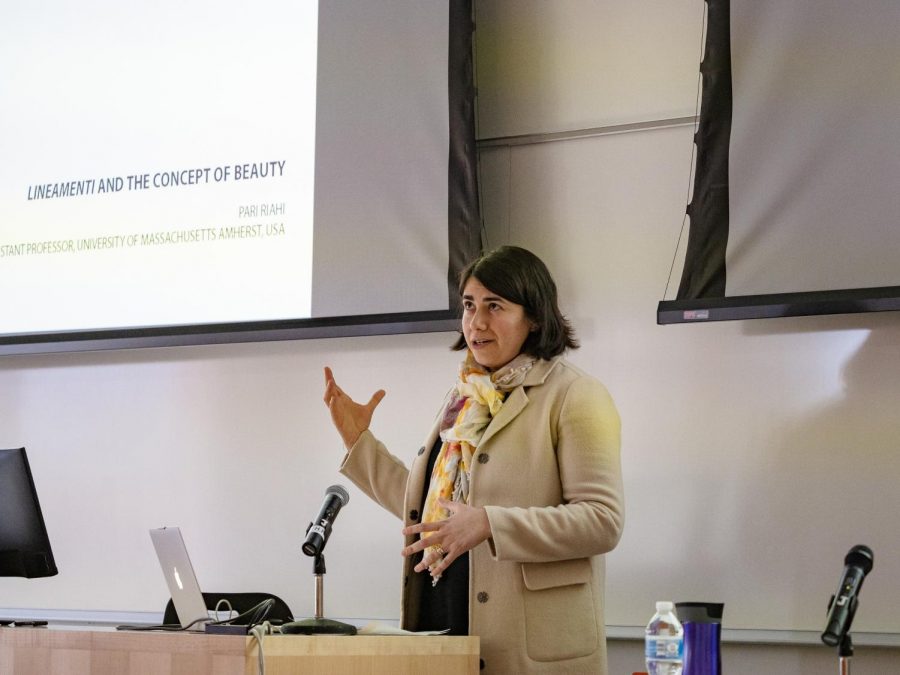It is pretty unlikely that anyone hasn’t yet heard about the college admissions scandal that is being called the “largest college admissions scam ever prosecuted.” Many wealthy parents, including actresses Lori Loughlin and Felicity Huffman, were charged in the criminal investigation for facilitating cheating on standardized tests and bribing college coaches and school officials to get their children accepted into elite schools. Fellow Massachusetts Daily Collegian columnists have written thought-provoking articles about this scandal, focusing on the college admissions process and its legitimacy. One thing that this high-profile scandal makes very clear is the obsession that people have with elite colleges. More accurately, it is the obsession that people have with success: not actually being successful, but appearing successful.
This mindset, which is widespread among college students, instills the behavior of academic cheating. In a survey of 300 students from both public and private colleges conducted by Kessler International, 86 percent claimed they had cheated in school. Even with the academic honesty policies that colleges have in place, which are taken very seriously, such a large percentage of students cheat. They are willing to take on the risks of failure, suspension, expulsion and even legal trouble because they are taught to believe that cheating is worth it. They are unwittingly taught by schools, parents and peers that appearing successful is much more important than being truthful. They buy into this concept and do whatever they can to earn a good grade.
Cheating used to be seen as a strategy for lazy or low-achieving students, but studies show that this is no longer the case. Even high-achieving students sometimes use the extra help to do the best they can on exams and projects. The level of competition in academic institutions is so high that it is no longer enough to do your best in a class, you need to do better than your best and everyone else’s best, especially in top-tier schools. Most students no longer cheat just to avoid failure, but they cheat to get the highest grade possible. It is no longer enough to survive; one must flourish and thrive academically, and students turn to cheating to accomplish it.
In addition, academic cheating is becoming more accepted and more of a norm among college students. It no longer carries the stigma that it used to. Attitudes of apathy and indifference towards cheating are on the rise in our academic culture. In fact, 54 percent from the Kessler International survey indicated that cheating was okay.
In the race to the top, through the means of cheating, students forget that they are sacrificing the very thing that they hoped to gain from college: an education. Good grades and a high GPA will only get you so far. Only seeming academically successful does not help you in the long run. After your academic career, you will have to rely on the knowledge that you learned and retained. I understand the intense pressure and the competitive environment that students endure, but cheating shouldn’t be the answer.
Students aren’t the only ones to be blamed, however, because our current academic culture does not provide any other way out. Students focus on seeming successful because that is what is rewarded and commended. The pressures of obtaining a job right after graduation and of the high cost attached to a college education result in grades and GPA being the end-all-be-all. In such a situation, students cannot help but focus solely on these quantifiable values, instead of pursuing an academic challenge or intellectual development. Higher education becomes nothing more than a static process that results in a meaningless degree.
Unless there is some change to the way the academic system currently works, one cannot expect a decrease in academic cheating. And unless students are taught and truly understand the difference between appearing successful and actually being successful, their efforts in college are going to continue to be focused in the wrong place.
Rithika Senthilkumar is a Collegian columnist and can be reached at [email protected].




















Dr. Ed • Apr 4, 2019 at 1:50 pm
A century ago, all a college graduate had was the hand-signed diploma.
.
There were no laser printers, nor photocopiers, and the only record of your GPA sat in a dusty filing cabinet in the Registrar’s Office. You were a graduate and that’s all any employer was ever told — that and whatever any professor you might list as a reference thought of you.
.
There was no calculation of GPAs to four decimal points (which would have had to have been done by hand back then) nor any need for it. Except for the Valedictorian and Salutatorian slots, there wasn’t the competition for the one-ten-thousandths of a point — nor the motivation to cheat.
.
I can not help but think the ultra-competitiveness of the modern academy is, at the least, exacerbating the motivation to cheat. After all, how many people know that the late Sen. Ted Kennedy got kicked out of Harvard for cheating — his dad’s money got him back in.